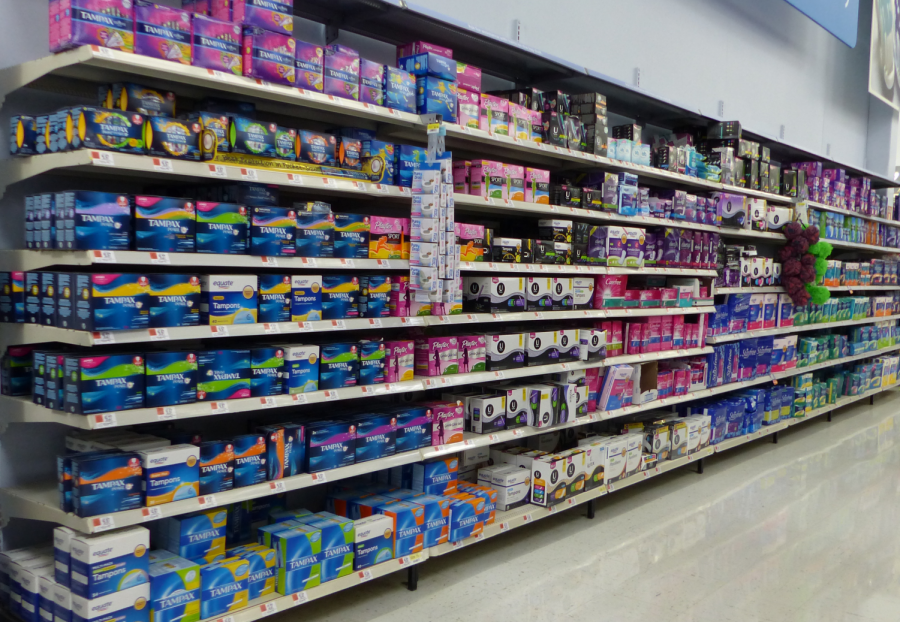Luxury tax being placed on non-luxurious items
A number of women are trying to come together to change the law in states in which feminine products are tagged with a luxury tax.
March 25, 2020
Anyone with a functioning uterus knows the pain of having to drive themselves up to the store every month to buy themselves pads, tampons, etc. For those on the outside of this it can be easy to simply not consider how the price of these products adds up over time. They can end up being anywhere from $5 to $12 depending on the brand one decides to use. Also, some of these products are made with harmful chemicals that can cause uncomfortable issues, so in order to combat this they must turn to the brands that are much more expensive.
But let’s not just look at the price these products are given on the shelf. Here in Texas there is a 8.25% tax is on most of these items, for our precious government considers them to be luxury items. Clearly this only shows how our sex-ed curriculum also has major issues, for women deciding they want to go out in public without risking a major accident is far from a luxury. You can only imagine the horror of going to buy your first box of pads/tampons and seeing the price jump from the tax imputed on the register. In the end these products shouldn’t be something that dig holes into our bank account every month.
Thankfully there are women like Nancy Kramer who started the Free the Tampon movement that has allowed her to convince many companies and schools to make sure their restrooms are always supplied with enough hygiene products for their employees and students -like one ensures that there is enough toilet paper and soap in a restroom.
Kramer also did further research brought to light that 89% of women over the age of 18 that menstruate have been in a public restroom and found themselves unprepared for the start of their period. Along with that, 92% said that the rare and rusty vending machines that are meant to give you the products needed (for the cost of a quarter or two) typically don’t work.
Though she doesn’t necessarily advocate for tampons to be free overall or at least without tax, she is clearly helping by ensuring that she can get as many businesses and schools to put in hygiene products for uncontrollable emergencies that occur to many women.
Personally, I would rather see these products free and readily available for all; but that is too much wishful thinking for Texas. Instead it makes much more sense to propose that the ridiculous luxury tax is taken away, for it makes the state come across as ignorant for not understanding that periods aren’t something one can plan for. Of course, along with that it would be wonderful if more school bathrooms could take up the slow trend of putting pads and tampons in restrooms so that we no longer have to humiliate ourselves by speed walking to the nurse’s office every time an accident occurs.













